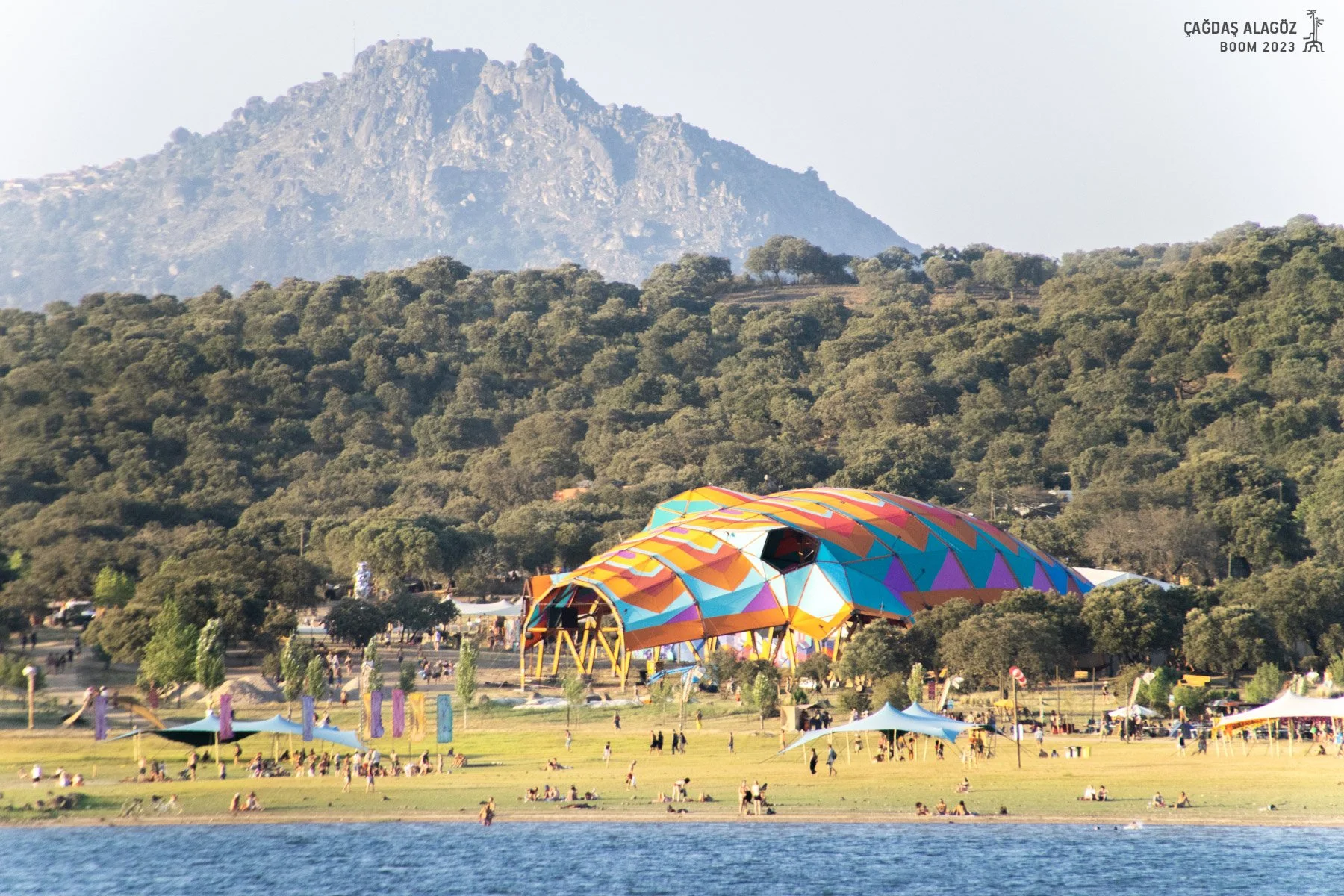AGF INSIDER: TRENDS AND BEST PRACTICES IN SUSTAINABILITY WITH Artur Mendes
Welcome to AGF Insider, our exciting new series where we bring you monthly interviews with industry experts.
Each month we catch up with an industry leader in the sustainability world to find the current trends and best practices
This month we catch up with Artur Mendes from Boom Festival.
What are the best practices that you are seeing give the best results?
To truly advance sustainability in festivals, it's crucial to start with guiding paradigms before diving into specific practices. Too often, green events focus on isolated initiatives without embracing a holistic approach that considers the interconnectedness of all variables. While there are still relatively few festivals that operate from a broad, integrative perspective, it's encouraging to see a growing interest and increasing demand from audiences. More promoters are recognizing the importance of adopting sustainable practices.
From my perspective, focusing on nutrition, rational water use, reducing emissions, and regenerating ecosystems are the key practices with the most transformative potential. Additionally, the recent emphasis on festival participants as individuals and as a community is vital. Prioritizing mental health, accessibility, harm reduction, inclusivity, and social programs that provide access to low-income individuals enriches festival culture and generates profound social impacts.
What trends are you seeing this year?
What are the obstacles?
In some countries, there is increasing access to generator providers that use battery systems, significantly lowering emissions, and this trend is expected to grow with more suppliers entering the market. There's also a rising interest in eco-friendly sanitation, such as composting dry toilets; however, the available technologies are not always the most advanced.
Plant-based diets are becoming more popular at festivals, but I’m concerned with the lack of awareness regarding the quality of the food offered. Too often, we see highly processed, industrialized plant-based products instead of whole foods, which is detrimental to festival-goers' nutrition. While it’s positive that no animals are harmed, I have reservations about the environmental impact, emissions, and nutritional value of these processed plant-based foods.
Another emerging trend is the emphasis on regeneration, although many festivals lack the physical land to implement these principles fully. Still, the growing interest in regenerative practices is promising.
Regarding obstacles, there’s a widening gap between countries that significantly impacts promoters. Stronger economies with larger populations have better access to eco-friendly products, like battery-powered generators, whereas smaller or less economically robust countries often lack these resources. For example, in Portugal, there are limited options for affordable battery generators, making it impractical to import due to the associated emissions. This disparity could widen the gap between events that can access green technologies and those that cannot.
The biggest barrier, however, remains mental. Promoters must step up and commit to ecological responsibility, while audiences need to embrace behavioral change to support these efforts.
What’s the next big thing in sustainability in events?
What would be the biggest game changer from your perspective?
There are several emerging trends that I believe will be influential in the coming years. One on the environmental side, the others on the social dimension.
Firstly, we need to move beyond sustainability, which has become a somewhat outdated concept, and shift our focus toward regeneration. This shift will emphasize the importance of not just reducing emissions, but also safeguarding biodiversity and essential life-support systems. While emissions remain a key driver of climate change, the health of our ecosystems—both on land and in the oceans—forms the foundation of all life. By raising awareness about biodiversity's crucial role, we can inspire significant behavioral shifts in individuals and cultivate a culture that values unity, inclusivity, and environmental responsibility.
Secondly, the social aspect of festivals is evolving. Inclusivity and social awareness initiatives are thankfully on the rise, but I see three specific areas gaining more attention. The first is the emerging conversation around the "caste system" that divides attendees based on income and economic status, largely through the sale of VIP tickets. While for some promoters this is a critical revenue stream that helps offset rising costs, and for others it’s a matter of survival, we should aspire to create events that challenge social hierarchies and foster inclusivity.
The second aspect concerns mental health and the growing need to disconnect from technology. For many festivals, social media sharing has become a central part of the experience, but it's becoming increasingly clear that this has a significant downside. Attendees are often less "present", the energy of the event gets diluted, and the connection between the audience and the performances is weakening. I believe we’ll see more festivals implementing phone bans or launching campaigns to minimize phone use during events. This is essential to bring back the sense of togetherness, presence, and the magic of live performances without the filter of a screen.
Lastly, community.
Humans are inherently social beings, and festivals offer one of the best opportunities to strengthen community bonds, meet new people, and forge lasting connections in a setting that challenges the status quo. I believe we will see a rise in projects that deepen the involvement of festivals with local and indigenous communities, as well as initiatives that support the formation of communities within festival audiences. At Boom, for example, we've seen this for years: people leave the festival, come together, and create their own eco-villages, urban networks, and community projects. Strong communities foster a strong human culture. In an age marked by disconnection and individualism, people are craving that sense of belonging. If festivals can help facilitate this, we’ll be realigning humanity with its core essence.




